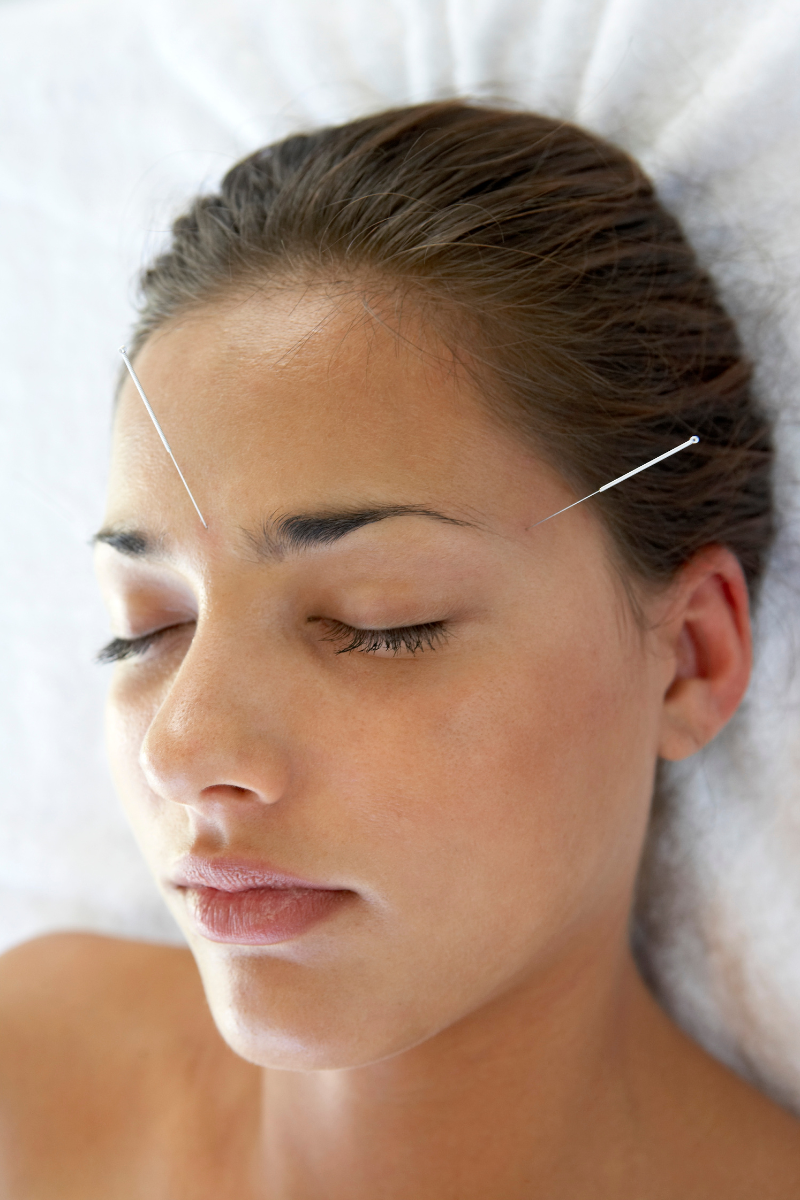Relieve Stress, Anxiety, and Depression Naturally: Meditation, Yoga, and Acupuncture
Mental health care is crucial, especially in our fast-paced world. While therapy and medication are common treatments, holistic approaches like meditation, yoga, and acupuncture can be powerful complementary tools. After all, our bodies, minds and emotions are all connected. In this blog, we’ll explore how these three modalities can help reduce stress, anxiety, and depression, and improve your overall mental well-being.
Meditation: A Mindful Approach to Mental Health
Did you know that people tend to carry their traumas, emotions and secrets in our abdomen? Something as simple as breathing deeply - which you can do anywhere, anytime can bring relief. Meditation and breathing aren’t just for those who can shut their brains off and be fully zen! Meditation is a simple practice that helps quiet your mind, ease tension, and reduce stress. Whether you're dealing with anxiety or depression, meditation offers a way to connect with the present moment and calm your thoughts.
Here are some simple ways to get started even if the thought of shutting off your brain seems impossible!
Tangible Benefits of Meditation:
Relieves stress by lowering cortisol levels and promoting relaxation
Reduces anxiety by helping you stay grounded and focused
Lifts mood – A gratitude-focused meditation can help shift your mindset, especially if you’re feeling down or stuck in heavy body symptoms associated with depression.
How to Get Started with Meditation:
Apps: Headspace and Calm are also great resources for guided meditations that fit into your busy schedule, offering both beginner-friendly sessions and advanced techniques.
Have a Peloton? Did you know the Peloton App offers a range of guided meditations from 5 to 30 minutes, focusing on topics like gratitude, calm, sleep, and courage?
Tip: Start small—just 5 minutes a day—and build consistency over time.
Yoga: Connecting Body and Mind for Mental Wellness
Yoga is a holistic practice that connects breath, movement, and mindfulness. It’s particularly effective for managing anxiety, as the focus on controlled breathing and slow, intentional movement helps calm racing thoughts and reduce nervous tension. Most people store their tension and stress in their shoulders or their hips. Yoga can help ease this stress!
Tangible Benefits of Yoga:
Reduces anxiety by quieting the mind and promoting relaxation through deep breathing
Relieves stress by releasing tension in the body
Improves mood by lifting your spirits and create a sense of emotional balance, especially when practiced consistently.
How to Get Started with Yoga:
Apps: The Peloton App offers various yoga routines for all skill levels, from beginner to advanced, and covers a range of needs, including stress relief and relaxation.
YouTube: Yoga with Adriene is an excellent YouTube channel that offers free yoga classes tailored to specific needs, including anxiety relief and emotional balance.
Tip: Even 10-15 minutes of daily yoga can make a big difference in calming your thoughts.
That still feels a bit too much?
Try these stress-relieving poses you can do almost anywhere!
Seated Twist: Gently twist your torso to one side while keeping your hips grounded, great for releasing tension in the spine.
Cat-Cow Pose: Alternate between rounding your spine like a cat and arching your back like a cow, focusing on deep breaths (in your office? Try it seated)
Forward Bend (Uttanasana): Reach down towards your toes while keeping a straight back, helps calm the nervous system
Seated Figure Four: Cross one ankle over the opposite knee and gently lean forward, stretching the hip flexors
Shoulder Rolls: Roll your shoulders forward and backward to release tension
Acupuncture: An Ancient Practice with Modern Mental Health Benefits
While meditation and yoga are great self-care tools, acupuncture offers a deeper level of support, especially for those struggling with chronic stress, anxiety, or depression. Acupuncture involves inserting tiny, sterile needles into specific points on the body to restore balance and promote healing. Acupuncture works by calming the nervous system and releasing neurotransmitters like serotonin and dopamine, which help regulate mood and relieve stress. It also helps to reduce symptoms of anxiety and depression by balancing energy flow and supporting overall well-being.
Tangible Benefits of Acupuncture for Mental Health:
Reduces anxiety and stress by calming the body’s “fight or flight” response
Improves sleep by promoting relaxation and balancing hormones, helping you feel more rested and energized
Alleviates depression by stimulating the release of natural “feel-good” chemicals like endorphins
Eases physical symptoms of stress – tension headaches, muscle pain, and digestive issues can all improve with regular acupuncture sessions.
Explore Acupuncture with a Community Partner
If you’re interested in incorporating acupuncture into your mental health routine, we recommend reaching out to our trusted partner, Brianna Kraus from Full Circle Acupuncture. Brianna specializes in treating stress, anxiety, and other mental health concerns through acupuncture and can help you create a personalized treatment plan.
Can’t get in to see Brianna right away? Try these simple moves:
Crown - place your pointer fingers above both ears, draw a line straight up to the top of your head until your fingers meet. Press gently down on the top of your head. This is good for opening and calming the mind and eliminating racing thoughts
Third Eye - place one finger directly between your eyebrows and press to calm the mind
Foot rub or foot bath - focus on the ball of the foot for the best relief. Helps ground your energy flow
Holistic approaches like meditation, yoga, and acupuncture provide powerful ways to manage stress, anxiety, and depression while supporting your overall mental well-being. While meditation and yoga can be easily incorporated into your daily routine, acupuncture offers a deeper and more targeted solution for mental health struggles.
If you're ready to explore acupuncture as part of your mental health care, don't hesitate to reach out to Brianna Kraus from Full Circle Acupuncture for expert care.
Meet our Acupuncturist
Brianna Kraus
A proud Colorado native, Brianna was born in Steamboat Springs and grew up in the Littleton/Centennial area. She earned her Bachelor’s of Science in Psychology from Drake University and her Master’s of Science in Acupuncture from Southwest Acupuncture College.
Brianna first started receiving acupuncture treatments at the age of 16, after a strong flu-like illness left her anxious, depressed, and chronically exhausted. Although all Western tests came back normal, these results left Brianna feeling frustrated by a lack of effective solutions. However, through acupuncture, Brianna not only felt happier and more energetic, but she also felt heard and validated by her acupuncturist. Later in life, these positive early experiences inspired Brianna to pursue a career in acupuncture. She now specializes in the treatment of stress, anxiety, depression, insomnia, women’s health (including cycle regulation, fertility, prenatal/postnatal care, and menopause), and musculoskeletal pain. She strives to educate, support, and validate her patients, and, above all, make them feel better. To schedule a session with Brianna, please visit our Acupuncture page at this link.





